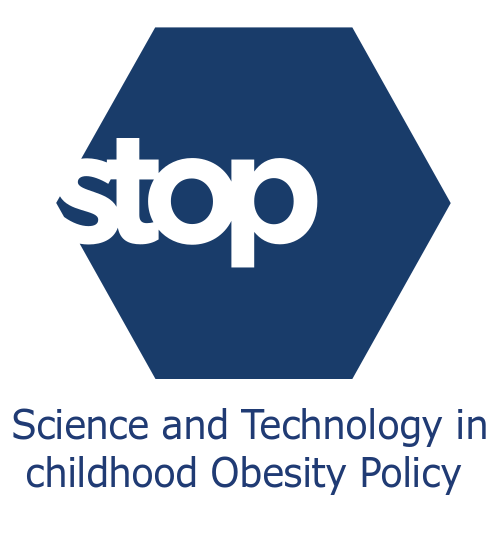
In a recent interview, we talked with Prof Mojca Gabrijelčič Blenkuš, a medical doctor and public health specialist. Prof Gabrijelčič is a member of the STOP consortium and coordinator of the Joint Action Best Practices in Nutrition (JA Best-ReMaP) project that aims to improve the quality of food supplied to children of Europe. The interview was an opportunity to learn more about the high-level event on food policy between The Science & Technology in childhood Obesity Policy (STOP) and JA Best-ReMaP. The conference taking place this November 17th-18th will support the translation of research knowledge to drive policy decision-making. It will leverage the projects’ innovative and complementary approaches to curb the rise in child and adolescent obesity.
What are the barriers to addressing childhood obesity in Slovenia?
Slovenia has a good action plan and a lot of obesity-prevention activities are taking place in public settings, including kindergartens and schools, where nutrition and physical activity are a priority in curricula. Also, in primary health care centres we support families with a lot of information from pregnancy onwards. Despite attempts to create a health-promoting environment for nutrition and physical activity we still have a very disruptive food environment. Children are exposed to excessive levels of marketing. But again, with some measures, we could intervene in a healthier direction. A decade ago, a school food scheme was implemented by the Common Agricultural Policy targeting primary school children in Slovenia. The initiative received an investment of almost 1 million euros. The advantage of this policy is that it is expanded to a wider age group: from 6 to 15 years old. An evaluation of this scheme with 15,000 children and adolescents found that the intake of fruits and vegetables is still decreasing. The only group where it is indeed increasing is girls from the lower socio-economic strata. We need to take a systems approach combining existing measures and working collectively more. The COVID-19 has also disrupted physical activity patterns due to lockdowns. Essentially, you must influence structure if you want to allow individuals to lead healthy choices.
National governments regularly launch initiatives to address childhood obesity which often fail, why do you think so many initiatives in this area are unsuccessful? What has been learned from previous policy failures?
To date, I think the most important thing we have learned, at least from a personal perspective is the need to foster stakeholder collaboration. Therefore, the STOP project is engaging stakeholders systematically and aims to produce recommendations for a stakeholders’ network. The STOP Work Package (WP) that my Institute is leading aims to facilitate the engagement of multiple, diverse stakeholders around specific policy issues and to address cognitive dissonance, through extensive work with relevant stakeholders in childhood obesity at the EU level. Slovenia is a small market, facing the influence of cross-border marketing, and relying on imported food supplies. Working with stakeholders in Europe, where we get a lot of food from is important.
More recently Slovenia held the Presidency of the Council of the European Union. Did this influence the prioritisation of obesity on policymakers’ agenda?
COVID-19 has taken energy and shifted priorities that would otherwise be invested more to the presidency topics, but despite that, it is encouraging to see activities in the realms of public health being strengthened. The presidency is focusing on innovation in health systems, including how policies within them can be more effective. We are organising a conference to put obesity high on the policy agenda. This is being hosted as a side event of the Slovenian Presidency of the Council of the European Union 2021.

Can you tell us more about the conference you are organising?
At the conference, STOP will host an essential component in the project’s stakeholder engagement process. We will further explore concepts and alliances regarding policy solutions and assess stakeholders’ attitudes towards the strictness of obesity-related policy measures. To date, our dialogues at STOP have shined a light on the factors influencing stakeholder collaboration – the role of power, transparency, and trust. The voice of young people is important because they want to see a change in the interaction among stakeholders and achievements and specifically trust and transparency. By the end of the dialogue, I hope we achieve a more collective vision. Fostering new networks between stakeholders, based on the STOP recommendations would be a key indicator of success.
You are also involved in JA Best-ReMaP. How has being involved in both projects strengthened your work?
I think that it is a unique opportunity that did not happen by chance. We are working collectively towards the same goals, but with different yet complementary techniques and results. Best-ReMaP is not the work of one person or one country but something member states have been working towards for years. At National Institutes of Health, we are not that strong in research. We are strong in translating research knowledge into the policy environment and by doing that we are supporting decision making.
Speaking about STOP, the interest to learn more about the stakeholder’s landscape led us to work together with the faculty of social sciences, University of Ljubljana, for a few years at the national level. We want to analyse stakeholder networks and the key components and mechanisms that make them productive and constructive at the EU and national levels.
What can one expect from joining the JA Best-ReMaP and STOP joint conference?
Heightened awareness about the importance of collaborative actions – road map, tasks, and the expected outcomes of STOP & JA Best-ReMaP. Participants will be informed about what we are doing and will participate in those processes as stakeholders. We have joined forces with two research projects addressing childhood obesity in Europe, CO-CREATE and PEN. They will also be presenting.
We have planned the event to coincide with the presidency to attract policymakers and decision-makers at the national level to join and be a part of the conversation and search for collaborative solutions.
About the STOP project
Led by Imperial College London and part of the Horizon 2020 programme, the Science and Technology in childhood Obesity Policy (STOP) is a four-year European Commission-funded project which brings together 31 international research, advocacy and governmental organisations from 16 countries to generate scientifically sound and policy-relevant evidence on the factors that have contributed to the spread of childhood obesity in European countries, and on the effects of alternative policy options available to address them. The project engages international partners from different policy-contexts in the United Kingdom, Italy, Estonia, Romania, Portugal, France, Belgium, Slovenia, Sweden, Croatia, Spain, Finland, Switzerland, with additional partners in New Zealand and the USA. For more information about the STOP project, visit http://www.stopchildobesity.eu/
Follow the project Twitter account: @STOPobesityEU

